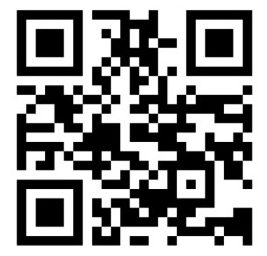April Fools is a classic holiday meant to celebrate people’s love for pulling light-hearted pranks. However, in recent years, April Fools has been declining in popularity, as people are playing less practical jokes and instead large companies are hijacking the holiday to appear relatable. But this development leads to the question: what happened to April Fools Day?
Before looking at the April Fools Day of the present, we need to take a look as to how it even started in the first place. While the history of the holiday is uncertain, many historians believe in started in 1582, when France switched from the outdated Julian Calendar, which started at the Spring Equinox (usually around April First) to the modern day Gregorian Calendar, starting on January 1st. Since many people were slow to get the news, a large subsect of people were not aware of the change in the calendar and celebrated the new year in April. These people became known as “April Fools” and became the recipients of many jokes and pranks. The holiday spread and evolved, even becoming a two day festival in Scotland where people played pranks on each other, including inventing the infamous “Kick me” sign that has become synonymous with the holiday.
Despite April Fool’s rich history, the holiday has been rather irrelevant in recent years. In a 2017, poll of over 5,000 Americans, only 15% of respondees said that they were pranked on April Fools Day (YouGov). April Fools Day doesn’t even crack the top 15 National holidays in the U.S., as in a 2022 poll only half of the participants had a positive view of April Fools Day. Even looking at Google Trends, people looked up April Fools 40% less in 2021 compared to 2004, despite Google and the internet in general growing in popularity since 2004. When looking at the data, the story becomes clear: April Fools is losing its luster.
But why exactly is this? Many people dislike playing with other people’s emotions even if it is just a little prank for the holiday. While the Gen Z generation overwhelmingly seems to like the holiday with a 83% approval rate, older and more mature generations have much lower approval ratings, with the boomers even going as low as a 43% approval rate (Talker Research). These generations are the parents and teachers that are meant to be pulling pranks and passing on the honored April Fools tradition to their children. Their resistance to the holiday has clearly limited its influence. Glen Rock High School Senior Nick Tufano testified “When I was in elementary school teachers were more invested in April Fools and making jokes, but after that it felt like April Fools pranks were a rare sight.”
Another controversial trend regarding April Fools is the rise of brand dominance of the holiday. April Fools used to be a day where you could expect tricks and jokes from your friends, but in recent years it has been dominated by brands attempting to appear personable. Many times, when corporations try to join in on trends, they often become less enjoyable for everyday people. Just think about how sick of “All I Want For Christmas Is You” people are when Christmas time comes around. Some brands do succeed in making funny light-hearted April Fools pranks, such as this year when Heinz jokingly announced their new ketchup scented shampoo.
However, overwhelmingly brands misunderstand what makes a good joke and come off as out of touch, flat out lies, and can even cause controversy. This year Oreo announced that they were seperating the cookies from cream in their April Fools Prank, and this prank was the same as every other’s, neither funny nor fooling anybody, just a cheap attempt at stale, overdone gag. However, other pranks have gone lower than just being creative and were actually problematic. For example, in 2018 Elon Musk announced that Tesla was going under, causing an economic fright and shares in the company to fall by 7%. Even as recent as 2022 when Bier, an alcohol-subscription company, sent out a notification telling people they had won a lifetime supply of beer, when in fact they had not, causing a customer uproar. As companies continue to make stale jokes or even flat out lie to costumers, people have become bored with their antics with one Glen Rock resident even saying “the same April Fools brand pranks every year starts to get old after a while.” These negative views of brand actions could be affecting people’s perception of the holiday as a whole.
While April Fools was once a day for people to celebrate practical jokes and funny pranks with their friends and families, recent geenrational trends and a brand take over the day have been slowly killing the once reveered holiday. With such a gloomy outlook for what is supposed to be such a fun day, the question arises if April Fools Day can make a comeback.







